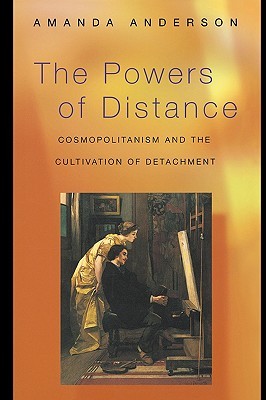
- We will send in 10–14 business days.
- Author: Amanda Anderson
- Publisher: Princeton University Press
- ISBN-10: 0691074976
- ISBN-13: 9780691074979
- Format: 15.2 x 22.9 x 1.2 cm, softcover
- Language: English
- SAVE -10% with code: EXTRA
Reviews
Description
Combining analysis of Victorian literature and culture with forceful theoretical argument, The Powers of Distance examines the progressive potential of those forms of cultivated detachment associated with Enlightenment and modern thought. Amanda Anderson explores a range of practices in nineteenth-century British culture, including methods of objectivity in social science, practices of omniscience in artistic realism, and the complex forms of affiliation in Victorian cosmopolitanism. Anderson demonstrates that many writers--including George Eliot, John Stuart Mill, Charlotte Brontë, Matthew Arnold, and Oscar Wilde--thoughtfully address the challenging moral questions that attend stances of detachment. In so doing, she offers a revisionist account of Victorian culture and a tempered defense of detachment as an ongoing practice and aspiration.
The Powers of Distance illuminates its historical object of study and provides a powerful example for its theoretical argument, showing that an ideal of critical detachment underlies the ironic modes of modernism and postmodernism as well as the tradition of Enlightenment thought and critical theory. Its broad understanding of detachment and cultivated distance, together with its focused historical analysis, will appeal to theorists and critics across the humanities, particularly those working in literary and cultural studies, feminism, and postcolonialism. Original in scope and thesis, this book constitutes a major contribution to literary history and contemporary theory.
EXTRA 10 % discount with code: EXTRA
The promotion ends in 17d.20:47:57
The discount code is valid when purchasing from 10 €. Discounts do not stack.
- Author: Amanda Anderson
- Publisher: Princeton University Press
- ISBN-10: 0691074976
- ISBN-13: 9780691074979
- Format: 15.2 x 22.9 x 1.2 cm, softcover
- Language: English English
Combining analysis of Victorian literature and culture with forceful theoretical argument, The Powers of Distance examines the progressive potential of those forms of cultivated detachment associated with Enlightenment and modern thought. Amanda Anderson explores a range of practices in nineteenth-century British culture, including methods of objectivity in social science, practices of omniscience in artistic realism, and the complex forms of affiliation in Victorian cosmopolitanism. Anderson demonstrates that many writers--including George Eliot, John Stuart Mill, Charlotte Brontë, Matthew Arnold, and Oscar Wilde--thoughtfully address the challenging moral questions that attend stances of detachment. In so doing, she offers a revisionist account of Victorian culture and a tempered defense of detachment as an ongoing practice and aspiration.
The Powers of Distance illuminates its historical object of study and provides a powerful example for its theoretical argument, showing that an ideal of critical detachment underlies the ironic modes of modernism and postmodernism as well as the tradition of Enlightenment thought and critical theory. Its broad understanding of detachment and cultivated distance, together with its focused historical analysis, will appeal to theorists and critics across the humanities, particularly those working in literary and cultural studies, feminism, and postcolonialism. Original in scope and thesis, this book constitutes a major contribution to literary history and contemporary theory.


Reviews